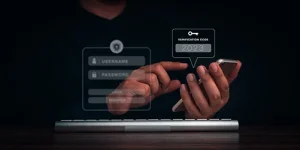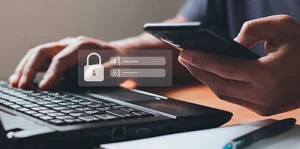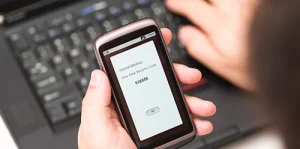
Multi Factor Authentication Management
Passwords alone are not enough to stop cyberattacks. Multi factor authentication (MFA) uses additional verification channels to ensure only the right users have access to your critical systems. But properly implementing MFA — from documentation and training to onboarding and help desk support — requires time and resources your IT team may not be able to spare.
StrikeNET Consults can help. Our managed services are a cost-saving, effective way to enhance your cybersecurity with MFA protection.
How StrikeNET Consults Supports IT Teams With MFA
StrikeNET Consults will help you evaluate, purchase, and install the MFA software you need to help protect your organization. We’ll help you determine what the best options are for your budget and needs. And we’ll manage the whole process for you from end-to-end.
If your users aren’t accustomed to MFA, they may have questions about how to use it. Our managed IT help desk support services ensure your entire organization has access to support 24/7/365.
If your end users have trouble installing or using MFA, they may need a little extra help. StrikeNET remote support technology services include software installation, advanced troubleshooting, repairs of applications, and more to help keep your staff up and running.
When new software or processes are implemented, there may be times when on-site IT solutions are requested or required. StrikeNET will send a technician to your site for any problems we can’t solve remotely.
MFA is one component of an effective cybersecurity plan. StrikeNET provides managed security services that give your organization access to sophisticated, 24/7 protection from digital threats and cyberattacks.
What Types of Multi Factor Authentication Solutions Can StrikeNET Consults Manage?
One of the great things about MFA is that you have options for which channels you use. StrikeNET will help you determine which ones are right for your organization and then provide managed services to support the solution.
Here are a few of the verification methods you might consider.

Phone Callbacks
For less tech savvy users, this can be a great option. Phone callbacks allow for authentication simply by answering the phone and pressing any key to complete the login process.

SMS Passcodes
SMS passcodes use your end users’ cell phones to verify their identity. They’ll receive a code by SMS that they can enter into the login prompt to continue.

App Verification
Some MFA programs use an app users can download onto their phone. During the login process, end users will receive a push notification to verify their identity.

Time-Based One-Time Passcodes
Similar to app verification, time-based one-time passcodes use an authentication app on your end users’ phones. When they try to access your systems, a code will appear in the app that the user will enter into the login prompt.

Bypass Codes
For one-and-done MFA, bypass codes can be useful to provide single event access for your contractors or other short-term employees. They can also be useful for securing lost devices.
